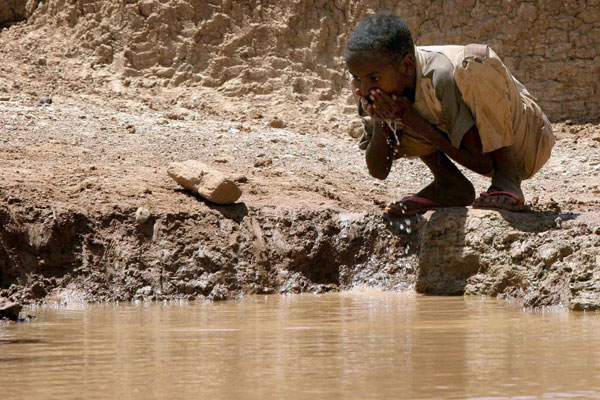
There is a very real fear that another call for urgent assistance for Somalia will fall on deaf ears.
DIALY NATION | Thursday, April 7, 2016 | By MICHAEL KEATING
In Summary
- On top of acute food insecurity, continuing drought could have a negative impact on broader security — strengthening Islamist jihadists who are currently on the back foot — and increase the flow of migrants to Europe and elsewhere.
- Somalia already has an estimated 1.1 million internally displaced people living in appalling conditions on the outskirts of many urban centres.
- At a time when Somalis are trying to put 25 years of civil war behind them, increase security, and build capable state structures, the world should rally to support them.
Severe drought five years ago triggered a famine that resulted in the deaths of about 260,000 people in Somalia. Drought is once again casting a long shadow over the people of Somalia.
This time round, there is an opportunity to mitigate its impact and head off the possibility of another major disaster. The resources needed to tackle the problem are certainly much less than the costs of a greater catastrophe down the line — whether measured in terms of lives, health, security, or money.
We are at a tipping point. If the drought continues into this month, hundreds of thousands of people risk losing everything. Most of these people depend on livestock or crops for food and cash. If the rains fail once more, they face catastrophe.
On top of acute food insecurity, continuing drought could have a negative impact on broader security — strengthening Islamist jihadists who are currently on the back foot — and increase the flow of migrants to Europe and elsewhere.
There is a very real fear that another call for urgent assistance for Somalia will fall on deaf ears. A multiplicity of crises, whether in Syria, Yemen, Libya, or the Mediterranean, could side-line a call for relatively modest sums for Somalia.
Last week, an emergency Call for Aid was launched by the UN to cover a funding shortfall that currently stands at $105 million. This will allow humanitarian organisations to help over one million people in Somaliland and Puntland in the next six months — for life-saving activities and measures to prevent people from selling off livestock and other vital assets on which their income and ability to cope depends.
A robust response by the international community to this appeal will help avert a repetition of the horrendous events of 2011. At that time, many of the areas most adversely affected were under the control of Al-Shabaab militants who prevented emergency assistance from reaching the hungry and displaced.
Fortunately, Al-Shabaab has little or no presence in the areas gripped by the current drought. That is the good news. But there is a real risk that failure to respond will make people more vulnerable to extremists, as community solidarity is weakened, competition grows among clans for scarce water sources and fertile land, and government credibility erodes.
Communities and authorities are responding to the crisis within their limited resources. Puntland issued an appeal for funds in January. A committee formed by Somaliland has raised $1 million. Officials say they have delivered aid to thousands of families in the hardest hit rural areas. A government-sponsored drought response committee is urging the public to contribute whatever they can to an emergency relief fund.
But far more needs to be done — and quickly. Help is needed from Somalia’s far-flung diaspora population, who send home well over $1 billion in remittances each year. A renewed demonstration of solidarity with compatriots will remind the international community that it is assisting a resilient people who know how to help each other.
In the longer term, the focus must be on bucking, if not arresting, the negative cycle that is resulting in these recurrent crises. Its features include climate change, environmental degradation, an economy perilously dependent upon the weather, food insecurity, poor nutrition, and lack of investment in job creation.
Somalia already has an estimated 1.1 million internally displaced people living in appalling conditions on the outskirts of many urban centres. A failure to minimise the impact of the drought will certainly swell this population as people are forced to leave rural areas. A surge in migration out of Somalia would further strain the limited resources of neighbouring countries to cope with the number of refugees.
So the temptation must be resisted to shrug off the dire situation as the latest in a series of recurring and somehow inevitable calamities in the Horn of Africa. Painful lessons have been learned; we now have a better understanding of what can be done to strengthen the capacity of communities and local authorities to cope.
There is a great deal we can do to reduce the likely impact of the drought. A generous response to this week’s Call for Aid will make a critical difference. At a time when Somalis are trying to put 25 years of civil war behind them, increase security, and build capable state structures, the world should rally to support them.
.
.
______________________
_____________________________________________________________________________________
Xafiiska Wararka Qaranimo Online | Mogadishu, Somalia
_____________________________________________________________________________________Advertisement
_____________________________________________________________________________________







